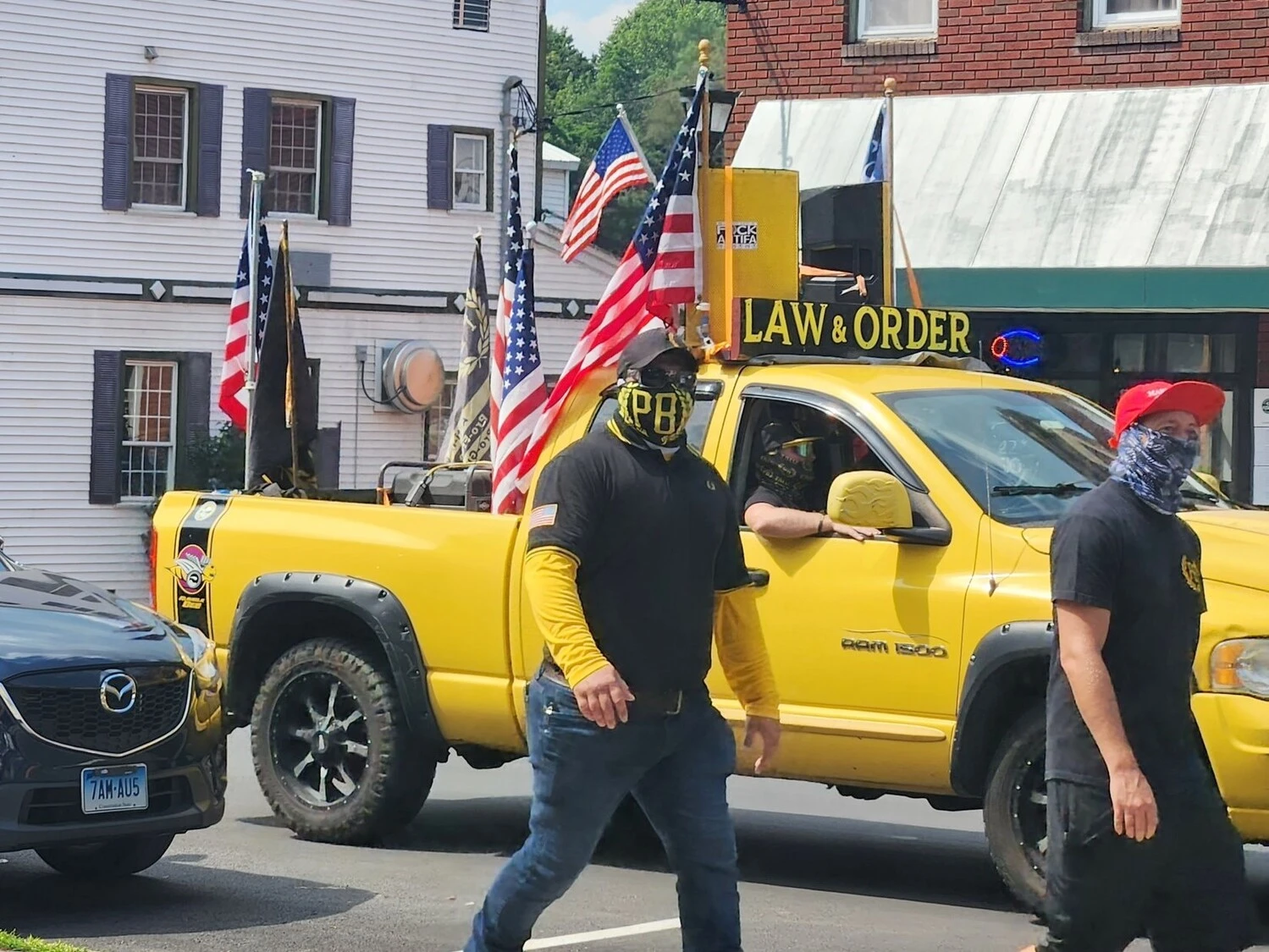There’s a little wine shop in downtown Ballston Spa, New York with rainbow-colored bottles lining the shop’s front window. The village is small, about 5,000 people, and attracts tourists from all around the world.
Last summer, the owner of the wine shop, Jes Rich, noticed a group of masked men in the street. “As soon as I saw them I ran out the door,” said Rich, who is openly queer and sees her shop as a safe and welcoming space for other queer people.
The men in the street were wearing black and yellow face coverings and T-shirts identifying themselves as members of the Proud Boys, a violent, far-right extremist group. A yellow truck drove alongside the group, blasting the provocative country song “Try That in a Small Town.”
“When you really, truly have the back of the people, the people will literally give the shirts off their backs for you. You need to know that. I pledge my militia,” Mizrahi said as the crowd applauded. “We will forever stand by your side, for someone who stands by ours.”
So there’s one thing that jumps out at me about all these types of movements: People want something to believe in. People want close allies, people they can march with, neighbors they know personally who they’ve been through some real shit with. Human beings need a “tribe” or a tight-knit village to be a part of. I think that’s basically nonexistent in modern American society, and I think a lot of the draw of these movements is that finally, I’ll have some people standing by my side that I can trust and depend on and do some real shit with.
I think some of the people in these movements just want to do violent things or are inherently drawn to the fascist ideology. But I think a much larger percentage just want something to be part of. I think if they had a real community to be part of day to day, the attractiveness of the dangerous community for them to be part of would be much less.
The lack of in-person community in modern American life has a profound and far reaching impact that I think many people fail to appreciate.
It’s alienation in its worst form. But it gets repackaged as “rugged individualism” and people end up finding an “other” to blame




